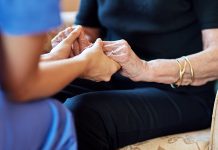With all the talk about climate change in the media – what does this have to do with nursing?
The Lancet medical journal and the World Health Organization recognise that “climate change is the greatest threat to global health in the 21st century”. But climate change also offers nurses the greatest public health opportunity for a fairer distribution of health.
Globally, 2016 and 2017 were the hottest years on record, with New Zealand having the hottest January ever in 2018.
The Royal Society Te Aparangi in 2017 published an excellent summary of the human health impacts of climate change for New Zealand, such as increased flooding, fires, damage to infrastructure and changing disease outbreak patterns.
These can cause injury or worsening illness, food and water supply changes, disruption to livelihoods and communities, forced migration and conflict. We can expect weather extremes including heatwaves, more frequent severe storms, heavier rainfall and
more droughts.
The greatest impact will be on those already experiencing social and health disadvantages. If greenhouse gases continue rising, many parts of New Zealand by 2100 may experience more than 80 days a year with temperatures above 25°C, more than double what we have now, and contributing to more heat-related deaths. If the planet warms by 3–4°C, half of the world’s coastal cities would be gone, displacing 100 million people.
The New Zealand Government target is to reduce carbon emissions to zero by 2050, with health currently responsible for around 3–8 per cent of total greenhouse gas emissions.
So, what can we do? We can talk about climate change!
I see a parallel with my work as a public health nurse around immunisation. We speak from an evidence-based perspective and work alongside patients to help them make informed choices around their health, and in this case, the health of the environment too.
As nurses, we have a unique role as trusted health professionals working with individuals and their families and we are also able to call for policy change and advocate at both local and national levels.
The actions we take now may not show up in the environment for another 20 years, but the benefits to our health start now!
“Health gains are possible for heart disease, cancer, obesity, diabetes, respiratory disease, and mental health,” which would also have cost savings for the health system and help reduce greenhouse gas emissions, argues Ora Taiao of the NZ Climate and Health Council www.orataiao.org.nz. Another consideration is Te Tiriti O Waitangi and how we work together to reduce the climate change impact on the hauora (health) of Māori.
With a quick search online, we can educate ourselves around climate change’s health risks like the asthma deaths in Australia after a severe thunderstorm led to the release of dangerous pollen levels, or how the groups disproportionately affected by or vulnerable to climate change are older people, children, marginalised communities and people with mental illnesses.
As nurses we can promote physical activity, walking and cycling – this reduces transport emissions that contribute to air pollution, improves fitness and reduces the risk of heart disease, obesity and diabetes. Plus reducing the need for surgery and the highly potent anaesthetic gases that are released into the atmosphere.
Reducing red meat intake and eating a more plant-based diet of fruit, vegetables and legumes also helps cut greenhouse gas emissions from animal agriculture and decreases the risk of bowel cancer and heart disease. We can lead the way in choosing these lifestyle options for ourselves, e.g. learning how to cook a vegan meal.
Nurses can promote efforts to reduce the carbon footprint in the workplace by looking at the products we use. Community nurses can encourage home insulation as this reduces energy emissions, and people living in warm, dry homes have better health and fewer hospitalisations. There is also the ‘Greening Your Practice Toolkit’ (2010), which supports general practices to make environmentally responsible changes.
It just takes one person to get started and get the team on board. Start with the changes that are the easy changes!
Rebecca Sinclair, RN, PgDip SCPHN is a Public Health Nurse and member of the College of Nurses Aotearoa. References available by emailing: [email protected]





















